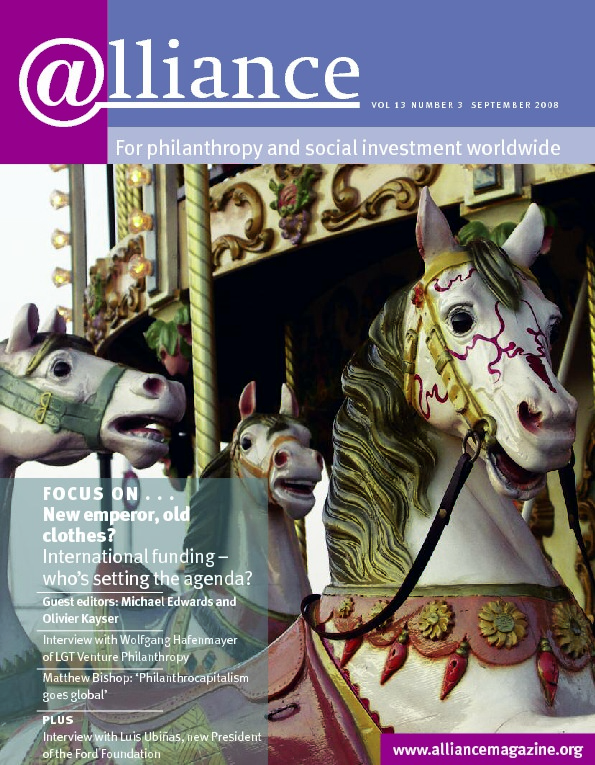Commemorations are generally as much about investing efforts in the future as about paying respect to significant events in the past, and this is true of the year-long discussion about the current state, achievements, and future of civil society in the region initiated by the Trust for Civil Society in Central & Eastern Europe (the CEE Trust). The Civil Society Forum will mark the 20th anniversary of the fall of the Berlin Wall, and will culminate in an international conference in September 2009. It has grown out of a concern about the widening gap between the general and undisputed commitment to democracy and the mass (self) exclusion of citizens from the democratic process.
In new democracies (in Europe and elsewhere), with civic culture perverted by half a century of totalitarianism, this trend slows down the rooting of democratic institutions and practices. The staff team and the board of the CEE Trust are strong believers (by default and by conviction) in the role of civil society in addressing social challenges, and it is therefore natural to revisit the inspiring ideas that brought the changes in 1989; to assess the situation around us today; to discuss trends and phenomena that influence our work and the lessons learned; and to promote new ideas and solutions. Both the discussion and the conference will place a strong emphasis on situating developments and trends in Central and Eastern Europe in a broader, global perspective and on formulating ideas and practical suggestions for the future.
Though the discussion will be initiated by the CEE Trust, it will happen only if civil society itself – organized citizens, non-profit organizations, issue-based coalitions and movements, civic-minded media and intellectuals – choose to be part of it.
The CEE Trust is primarily a grantmaking foundation but it has assumed this unusual convening role out of conviction that it is part of its mission to preserve the huge investment of money and personal energy that went into the transformation of our societies, and to stir reflection and encourage learning and innovation as we mark 20 years of democratization.
We are heartened in this endeavour by our partners. Currently, we support a wide variety of civil society agents: non-profit organizations, academics, informal initiatives, not-for-profit media. We monitor every project in our portfolio and this approach keeps the country directors in constant touch with this heterogeneous group of organizations and individuals.
Among our partners, we see new models of re-engaging the public (through participatory art, deliberative polls, and novel patterns of relationship between the sectors). We support the research, publishing and dissemination of policy briefs on vital issues (the rise of populism; the deficient accountability of public institutions; the new nationalisms). We help groups to develop and test methodologies for addressing problems such as the abandonment of children by migrant labourers, the failure of civic education, and political corruption.
From the CEE Trust’s point of view, what these diverse initiatives have in common is the effort to support organized activists to follow their mission, either by funding their initiatives or by providing core support. The Trust tries hard to be responsive and attentive to the needs and opportunities. Once a year we hold an open and broadly advertised call for ideas, and we review every proposal sent to us. In each country we rely for our selection on advisory committees consisting of smart, engaged and tough individuals. At the same time, the staff follow closely developments in societies and in the third sector and initiate talks and projects to address unmet needs.
This model of operation allows us to ask questions and air ideas as well as to receive quick feedback. We hope that, through the Forum and using these direct connections with our partners, we can engage opinion leaders within civil society and arrive at the right questions and useful answers.
Finally, I would like to emphasize the word ‘useful’. We would like those who participate in the Civil Society Forum discussions – the diverse actors engaged in shaping and contributing to the future of societies in Central and Eastern Europe – to go home with something useful: with intellectual satisfaction and with ideas that matter.
Rayna Gavrilova is Executive Director of the CEE Trust. Email r.gavrilova@ceetrust.org
For more information http://www.ceetrust.org





Comments (0)